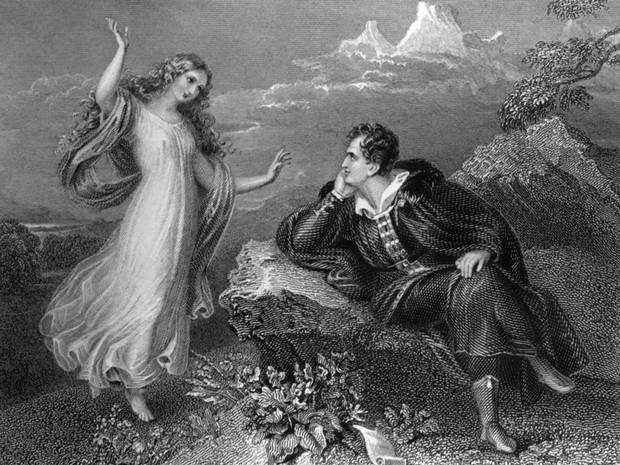love
The Most Inspiring Love Letters in the History of Literature (3): Lord Byron to Teresa Guiccioli

The words of Lord Byron, the man who embodied the quintessence of the Romantic spirit could make anyone weak in the knees. He addressed the most tender of them to his married lover, the Italian Countess Teresa Guiccioli.
With his flair for drama, outrageous personal exploits and scandalous affairs, George Gordon, Lord Byron knew how to make himself into a larger-than-life figure. His disregard for social rules manifested itself in spectacular fashion, as it did in 1805, when the poet, at the time as a student at Trinity College, Cambridge, outraged by the rule against keeping dogs at pets, acquired a pet bear (as the rule book said nothing against bears) which he walked around the college grounds.
Teresa Guiccioli – who appears as a character in Alexandre Dumas’ novel, “The Count of Monte Cristo,” where she is identified as “Countess G-,” – met the poet for the first time in Venice on January 22, 1818, only three days after her wedding to a nobleman over 40 years her senior. While Byron had acquired quite the reputation as a seducer, his attitude towards women was dismissive and superior, with one of his jilted lovers describing him as “Mad, bad and dangerous to know.” However, the young Countess left a powerful impression on the poet, becoming the great love of his life. At the same time, he feared that her much older husband would hire assassins to do away with him, and resolved to never go out without a sword and pistols. Still, he found it impossible to stay away from the Countess, who inspired many of his later poems, as well as countless letters, of which this is only one.
“My dearest Teresa,
I have read this book in your garden;–my love, you were absent, or else I could not have read it. It is a favourite book of yours, and the writer was a friend of mine. You will not understand these English words, and others will not understand them,–which is the reason I have not scrawled them in Italian. But you will recognize the handwriting of him who passionately loved you, and you will divine that, over a book which was yours, he could only think of love.
In that word, beautiful in all languages, but most so in yours–Amor mio–is comprised my existence here and hereafter. I feel I exist here, and I feel I shall exist hereafter,–to what purpose you will decide; my destiny rests with you, and you are a woman, eighteen years of age, and two out of a convent. I love you, and you love me,–at least, you say so, and act as if you did so, which last is a great consolation in all events.
But I more than love you, and cannot cease to love you. Think of me, sometimes, when the Alps and ocean divide us, – but they never will, unless you wish it.”
The affair lasted until Byron’s death in 1924, when the poet, who had become involved in Greece’s war of independence from the Ottoman Empire, succumbed to a fever at Missolonghi, during a military campaign. Although his body was taken back to England, his heart remained in Missolonghi and he is to this day considered a national hero in Greece.
Teresa Guccioli outlived him by almost 50 years and died in 1873.
—
Anca Rotar is a Romanian-born writer, over-thinker and caffeine addict. She is the author of two books, Hidden Animals and Before It Sets You Free, both available from Amazon.com. Among her interests, which she finds it hard to shut up about, she counts fashion, yoga, city breaks and deadpan sarcasm. She is also currently studying Japanese, so wish her luck. You can sample bits of Anca’s creative writing here.
Be the first to write a comment.
Your feedback
